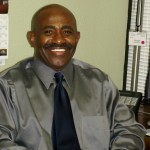Profiles in Recovery

Joe Powell
Growing up in an alcoholic home, Powell felt helpless and frightened. The daily chaos had a profound impact on his eight siblings as well.
“My father and mother died from effects of alcoholism,” Powell says. “I lost two of my brothers to alcoholism, drugs and mental health problems.”
Like many children of alcoholics, Powell struggled with addiction as an adult. But he charted a new course with methadone treatment for heroin detox and a 12-step program for alcoholism. That was nearly three decades ago. Today, Powell is a leader in the recovery movement, helping thousands of people conquer addiction as the head of an acclaimed non-profit recovery organization.
PreviousNextDay Job:
President/CEO of the non-profit Association of Persons Affected by Addiction (APAA). Located in Dallas, Texas, APAA was a pioneer among peer-driven recovery organizations, and has earned numerous grants and national awards.
At my worst, I was:
Homeless, lonely and afraid and did not know how to ask for help. At 19 years old, I was on a suicide mission. I was using heroin and saw on TV that soldiers were dying from heroin in Vietnam. So I enlisted to get the killer dope . . . I figured I would get shot up with dope or bullets to end the madness. I did not go to Vietnam because they found heroin in my system; I completed my military time in addiction treatment, went home and continued my use.
Stigma I faced:
Shame, guilt, fear, discrimination, labeling as an addict/alcoholic
My rock bottom moment:
The one DWI (Driving While Intoxicated) arrest; being sick and tired of doing the same thing over and over and over and no change in my life.
What worked for me:
I bought Methodone on the streets of Harlem to detox myself off heroin; I have not used any opioid since 1973. I continued to drink alcoholically until someone introduced me to the 12-step program in 1988.
My fear and trust issues would not accept any help at first. They told me I had to ask this guy to help me with the steps . . . even though he was kind and welcoming, my fear drove me to drink for another month before I could surrender absolutely to trust and accept his help. Once I did, that was the beginning of my recovery career.
Rules I live by:
Recovery first, include others in my life, trust at least one person who really knows me (my sponsor and now my wife), go to at least 3 meetings/support groups per week.
Work out every other day, have fun daily, do service work at a higher level than with the 12-step program, say the Lord’s Prayer, 3rd Step Prayer and the Serenity Prayer every morning and pray as needed for recovery balance and peace.
Best advice for newbies:
Keep it simple, don’t be hard on yourself.
Advice to my younger self:
Be aware of fear, selfishness, self-centeredness and guilt. My younger self was hurt in an alcoholic home and was fearful most of my life. I have learned to love myself as no one has ever loved me before.
What I learned about myself:
I am a person in long-term recovery and what that means is that I’m a servant leader today. I’m a father, a husband, a teacher of recovery and health. I give back what was freely given to me; I love people and I love myself.
When cravings come:
Today, my cravings and triggers are about craving to talk to someone, craving companionship, craving love. I go to a meeting, to the gym and work out, I work on myself. I talk to my sponsor, who is a psychiatrist and has taught me that maturity is about options. The more options I have, the more mature I am.
Shed the Stigma:
If you’re a person in long-term recovery who wants to share your insights, please contact us at [email protected].